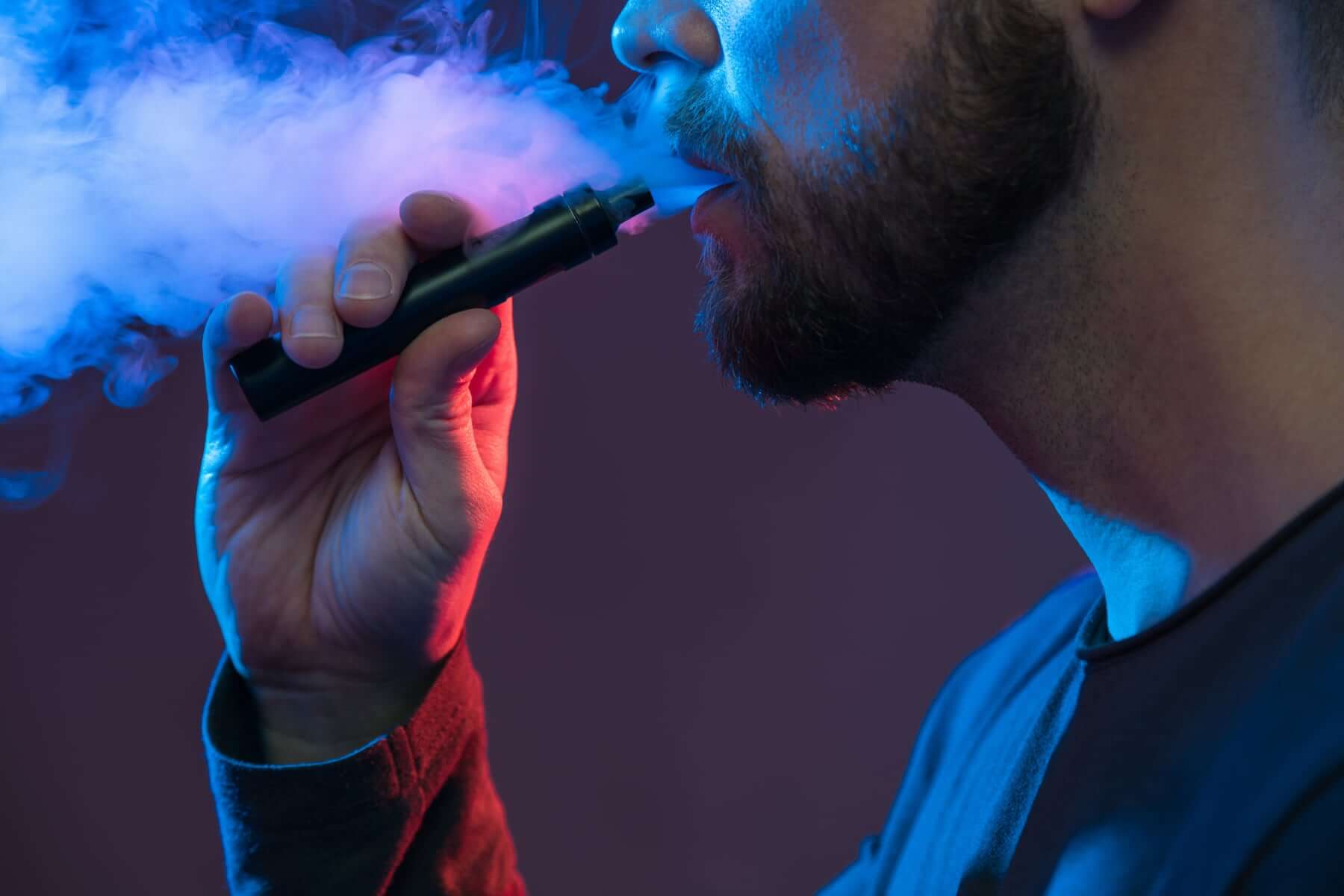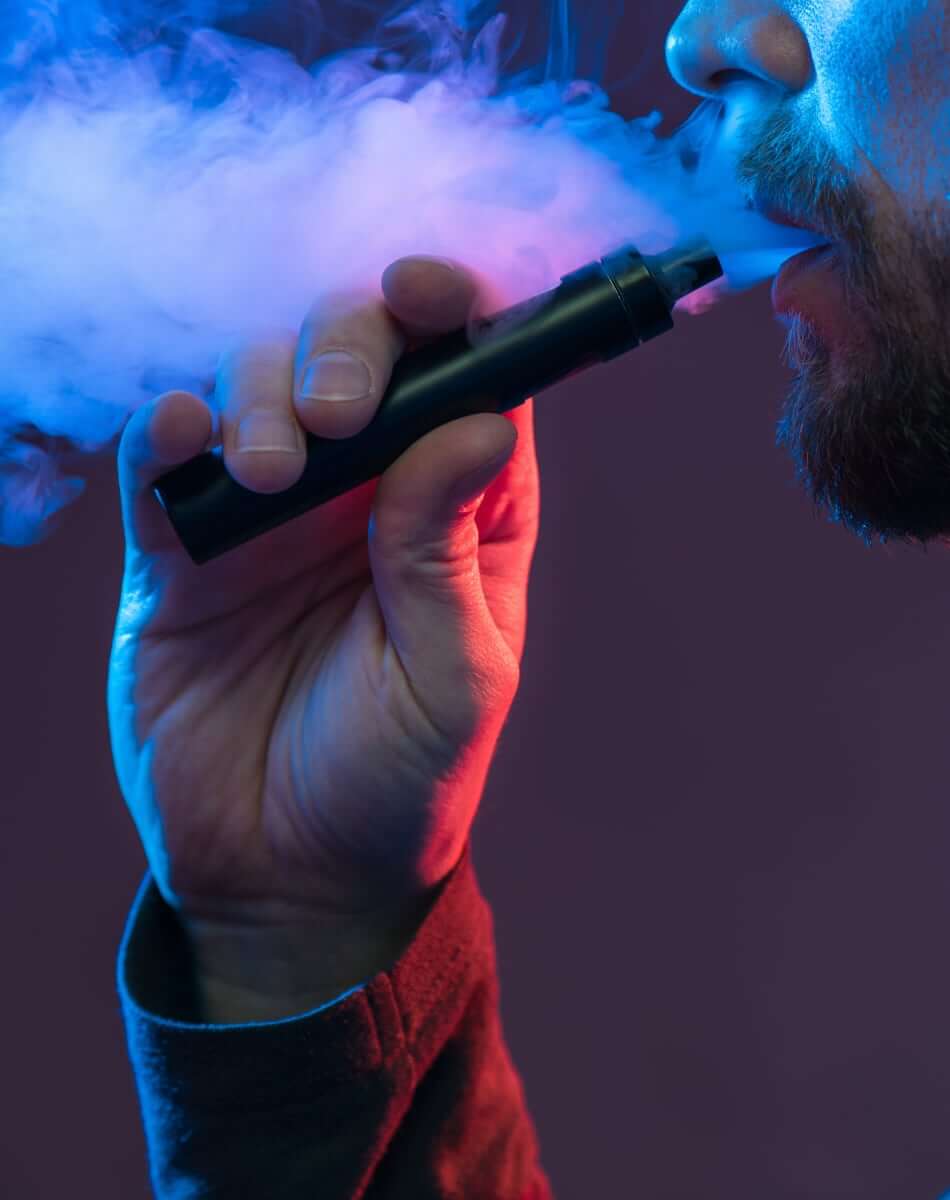
5 Common Vices
That Are Ruining
Your Teeth
You might want to rethink these risky habits
Bad habits are bad for a reason, right? We all know we should be drinking more water and less alcohol. We keep reading about how increasingly dangerous vaping is to our overall respiratory health. But these vices take a toll in ways we don't often even recognize. For instance, you might think you've got great oral hygiene because you brush your teeth, floss every night and steer clear of sticky sweets. But there are little things we all do that can cause some serious damage to our teeth. And we don't want to damage our smiles. Having good teeth is a big key to being confident and is constantly brought up when discussing what makes someone attractive. To help you keep your mouth healthy, we asked Dr. Heather Kunen, a dentist and orthodontist at New York's Beam Street dental studio, for the bad habits to watch out for and how to manage the fallout.
Risky Vices
for Your Teeth
Vaping
“We all know smoking is detrimental to your health and yellows your teeth, but since the mouth is the portal of entry for tobacco products, the effects on oral health are particularly severe,” says Kunen. “All forms of tobacco increase the risk of oral cancer and periodontal disease—the leading cause of tooth loss.” Nicotine, itself, causes the constriction of the muscular walls in blood vessels and prevents a healthy flow of blood and nutrients to the tissues it encounters. When it's inhaled, it can damage the gum tissue and dry out your mouth and throat. Finally, the propylene glycol chemical found in vape liquid binds to air moisture in your mouth, which according to the doctor, significantly dries it out. “Dry mouth is a leading cause of tooth decay as well as oral thrush,” she says. “Thus a Juul user is also more prone to developing cavities and oral fungal infections.”
Alcohol
“Alcohol is another culprit of oral cancer when consumed in excess,” says Kunen. “Beyond increasing the risk of oral cancer, alcohol also causes dry mouth and a decrease of salivary flow in the mouth, which leads to bad breath and drastically increases the risk of gum disease.” And as you're likely aware, regular consumption of darker alcoholic beverages such as red wine can significantly stain teeth. Plus, the tannins, those elements that make wine taste dry, can even lodge in the small grooves of your tooth enamel, creating a sticky surface that holds on to cavity-causing bacteria.
Carbonated
Beverages
Who doesn't love a refreshing sparkling beverage? But even sugar-free carbonated beverages increase the levels of acid in the mouth, and can have erosive effects on enamel. “Sugared soda is the absolute worst food or drink for oral health,” says Kunen. “Not only does the acidity of soda erode enamel, but the insanely high sugar content of these drinks drastically increases the chances of forming cavities.” According to the doc, you're coating your mouth with sugar and acid with each sip, and it takes the body about 20 minutes to clear this away with saliva. Her tip? If you do consume any carbonated beverage, it is best to rinse with still water after you are done drinking to restore the pH level in the mouth. Her warning? Do not brush your teeth immediately after drinking carbonated beverages; since they raise acidity levels and weaken the enamel, making it possible to permanently damage the enamel.
Coffee
and Tea
“While there are definitely plenty of benefits to consuming both tea and coffee, and I would never advise cutting either beverage out completely, there are some oral side effects to be aware of,” says Kunen. “Both beverages will stain your teeth over time and the high levels of caffeine in caffeinated coffees and teas can also significantly raise the levels of oral acidity, which leads to erosion of your enamel.” Again, she advises rinsing your mouth with water after finishing your morning coffee or tea to prevent the bulk of these nasty side effects.
Bottled
Water
Is bottled water really a vice? Well, it's certainly environmentally irresponsible. And some might argue a waste of money. So in that case, it's at least a borderline vice. “Look, water is wonderful for oral health,” says the doc. But some of the best daily protection you can give your teeth is drinking good old tap water. Why? Because it's fluoridated. And fluoride fortifies teeth against decay and promotes remineralization, which helps repair minor decay. But the bottled stuff, while tasty, has little to no fluoride. So if you want to stick with your pricey one-time-use bottles, dentists recommend a nightly fluoride rinse to help strengthen teeth.

A Bad Habit
Dr. Kunen warns her patients not to chew ice. Crunching on ice can often crack or chip teeth, weaken the enamel and cause problems with existing dental work such as fillings or crowns.






